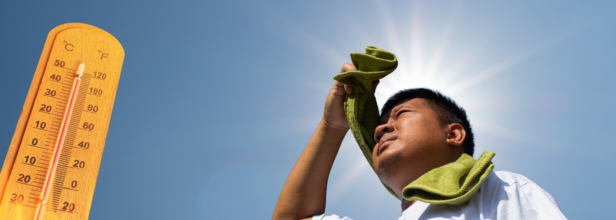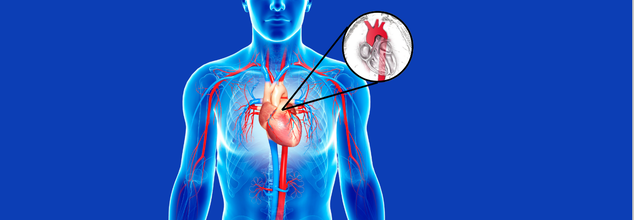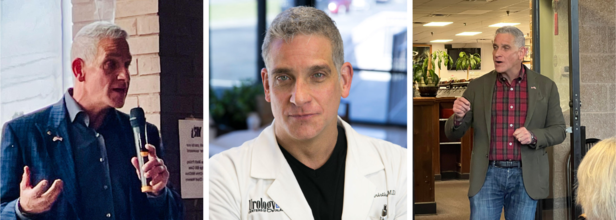
Credits: Canva
Heatwave In India: Know How It Affects Different Parts Of Your Body
As India enters the peak of summer, heatwave conditions have already begun affecting several parts of the country. The India Meteorological Department (IMD) has predicted that these extreme conditions will continue over the next few weeks, especially across North India, including Delhi NCR, Punjab, and Haryana.
While the national capital experienced a brief relief with thunderstorms and lightning on April 10, IMD’s forecast suggests that heatwave warnings will remain in place from April 15 onwards, putting millions at risk of heat-related health issues.
Among the lesser-discussed but significant health concerns during heatwaves is eye health. Alongside dehydration and exhaustion, prolonged exposure to high temperatures and ultraviolet (UV) radiation can cause a range of eye-related problems, from temporary discomfort to long-term damage.
How Heatwaves Affect the Eyes
The combination of heat and low humidity causes tears to evaporate faster, leading to dry eye syndrome. Symptoms include redness, itching, burning sensations, and a gritty feeling, as though something is stuck in the eye. Blurred vision and eye fatigue may also occur.
More seriously, intense UV radiation from the sun can cause photokeratitis, or sunburn of the eye. This condition damages the cornea, resulting in pain, light sensitivity, and temporary vision loss. Over time, long-term UV exposure increases the risk of cataracts and macular degeneration, both of which can cause permanent vision problems.
Ironically, trying to escape the heat can also backfire. Spending too much time in air-conditioned environments dries out the air, which further reduces moisture in the eyes, intensifying the symptoms of dry eyes.
Tips to Protect Your Eyes During a Heatwave
Fortunately, simple preventive steps can go a long way in protecting your eyes:
Wear UV-Protective Sunglasses: Choose eyewear that blocks 100% of UVA and UVB rays to minimize sun damage.
Stay Hydrated: Drinking water supports tear production and keeps your eyes naturally moist.
Use Lubricating Eye Drops: Artificial tears help counteract the drying effects of both heat and air conditioning.
Avoid Direct Sunlight: Try to stay indoors between 10 AM and 4 PM. If you must go out, wear a hat with a wide brim.
Limit Air Conditioner Exposure: Avoid sitting directly under AC vents or fans. Use a humidifier if indoor air feels too dry.
How the Body Reacts to Heatwaves
The body maintains a stable core temperature—around 37°C—through internal mechanisms controlled by the hypothalamus. Under normal conditions, sweating helps the body release heat, but in hot and humid weather, sweat doesn’t evaporate efficiently, reducing the cooling effect.
A 1985 NASA report noted that the body can only tolerate external temperatures above 35°C if humidity is low. When it fails to cool itself properly, the body begins to store excess heat—a condition known as hyperthermia.
This begins with heat exhaustion, marked by dizziness, weakness, thirst, and nausea. A 2023 study by the University of Roehampton in the UK found that at 40°C and 25% humidity, metabolic rates jumped by 35%—even though the core body temperature remained stable, the body was clearly under stress.
If untreated, heat exhaustion can progress to heatstroke, a potentially fatal condition where the body temperature exceeds 40°C. It puts enormous strain on the heart, kidneys, and brain, and requires immediate medical attention.

You May 'Not Have A Nerve' , But Scientists Just Found You Do Have A 'Second Heart' To Pump Blood
When we hear the word "heart," we imagine the body's engine—a tireless, muscular pump that works to circulate blood and bring oxygen to every living cell. But in a shocking discovery, scientists now suggest that we might have been underestimating another silent hero of our cardiovascular system- the aorta. Long considered to be little more than a passive pipe, the aorta is now being recognized as an active, dynamic participant in supporting the heart—so much so that scientists are referring to it as a "second heart."
This revolutionary finding presents a promising new vision of cardiovascular function and may redefine the way we treat heart failure and circulatory health globally.
The aorta, the largest artery in the human body, has long been renowned for its elasticity—stretching to allow the surge of blood from the heart and recoiling to keep pressure constant. Though these qualities were once thought to be purely passive, new studies published in The Journal of The Royal Society Interface show a more active role.
The aorta also does more than merely absorb pressure, according to research. The aorta produces what's referred to as a "wave-pumping effect"—a mechanical function by which the vessel stretches and recoils in harmony with the cardiac cycle. This motion generates energy that helps push blood through the body, essentially serving as a second pumping mechanism.
This phenomenon, only seen before in the initial stage of embryonic development, seems to continue up to adulthood, particularly being important in patients whose heart function is impaired.
How Your Aorta Becomes a "Second Heart"?
The wave-pumping mechanism, scientifically known as impedance pumping, is the interaction between heartbeats and the elasticity of the aorta. As the heart contracts during systole, the left ventricle forces blood into the aorta, stretching it like a spring. Subsequently, during diastole when the heart relaxes, the aorta snaps back, propelling the blood forward using stored mechanical energy.
This back-and-forth stretch-recoil mechanism enhances circulation without demanding another heartbeat. It's nature's clever technique for lessening cardiac burden while preserving blood flow—and might be particularly critical when the heart has been compromised by disease.
Researchers employed magnetic resonance imaging (MRI) to study the motion of the aorta of 159 people, both healthy volunteers and those with heart failure. The findings were dramatic.
Healthy subjects demonstrated much greater aortic displacement, reflecting strong wave-pumping activity. Conversely, individuals with heart failure had lower aortic stretch, implying weaker secondary pumping assistance. This contrast illuminates how some individuals with compromised hearts are able to pump blood efficiently anyway—partly due to the mechanical aid of their aorta.
Can Your Aorta Help Save Your Heart?
Heart failure, which impairs the heart's pumping ability, affects millions worldwide. This discovery paves the way for an entirely new treatment category: increasing the elasticity of the aorta to facilitate blood flow.
Today, certain antihypertensive medications are attempting to decrease arterial stiffness, but their specific effect on aortic wave-pumping is unknown. With this new understanding, therapies in the future may be created to activate or restore the aorta's pumping ability, relieving the failing heart's workload and enhancing patient outcomes.
Researchers are also examining non-drug treatments such as lifestyle changes and exercise, both of which are known to enhance vascular flexibility. Might we one day have individualized exercise regimens or vascular therapies specifically designed to maximize this second heart? The potential is intriguing.
Why the Aorta's Role Was Overlooked?
Interestingly, the wave-pumping function of the aorta was heretofore seen only during the embryonic stages, where it helped still-undeveloped hearts pump blood. Gradually, as the heart developed, researchers presumed that this process became obsolete.
That turns out not to be the case, according to this new study. What turns out to be true is that the aorta can continue to have this function deep into adulthood, particularly kicking in during cardiac duress.
This discovery is a paradigm shift in our conception of the vascular system—not only as a tube network, but as a smart, adaptive circulation partner.
To comprehend the aorta as something greater than an inert pipe—but instead as a second heart—may revolutionize diagnostics and treatment approaches for cardiovascular disease. From how we read MRI scans to how we customize therapies for heart failure patients, this information introduces a new dimension of complexity—and hope.
In the future, keeping your heart healthy might also mean taking better care of your aorta—the silent force that could be saving your life, one beat at a time.

Credit: Canva
Poor Dental Health May Trigger Fibromyalgia and Headaches—Here's How to Protect Your Teeth
You probably know that inadequately brushing can increase your risk of tooth decay, gum diseases and bad breath. But researchers in Australia have discovered that it can do much worse than this. The research, published in the journal Frontiers in Pain Research, discovered a surprising link between poor oral hygiene and body aches, migraines and stomach pain, especially in women.
The researchers concluded that women with worse oral health are significantly more likely to suffer from pain, including frequent headaches and conditions like fibromyalgia. Fibromyalgia is a chronic condition characterized by widespread musculoskeletal pain — including headaches — as well as fatigue, sleep disturbances and cognitive problems. They explained that it was because tiny microbes in the mouth that might be messing with the nervous system.
For this new study, researchers analyzed the data of 186 women—67% of whom had fibromyalgia—and found that those with the worst dental health were 60% more likely to suffer moderate to severe body pain and nearly 50% more likely to report migraine headaches. Thus, they concluded that the more severe their head hurt, the worse their mouth looked.
"This is the first study to investigate oral health, oral microbiota and pain commonly experienced in women with fibromyalgia, with our study showing a clear and significant association between poor oral health and pain," said lead author Dr Joanna Harnett, an associate professor at the University of Sydney School of Pharmacy. “Our findings are particularly important to fibromyalgia which, despite being a common rheumatological condition, is often under-recognized," co-author Sharon Erdrich added.
Here's How You Can Take Care Of Your Dental Health
Taking care of dental health is important. These are a few things you can do to take care of your dental health.
- Brush Before Breakfast: UK dental surgeon Shaadi Manouchehri advises brushing before eating breakfast to remove the bacteria that builds up overnight. This practice shields your teeth from acidic food and drinks that can weaken enamel.
- Choose Healthy Snacks: Opt for raw vegetables, nuts, or fruits that are low in sugar and require chewing, which stimulates saliva production and naturally cleans the teeth.
- Use Xylitol Gum: Chewing gum with xylitol after meals can boost saliva flow and reduce the risk of cavities.
- Wait Before Brushing After Meals: If you prefer to brush after eating, wait at least 30 minutes to allow your enamel to re-mineralize and harden.
Moreover, here are a few things you should avoid:
Avoid Sugary Snacks: Fermentable carbohydrates, such as chips, crackers, and cereal, turn into sugars that fuel the growth of harmful bacteria in the mouth.
- Skip Brushing After Acidic Meals: Acidic foods and drinks can weaken your enamel. Brushing immediately after consumption can wear away the softened enamel, leading to cavities.
- Don’t Skip Hydration: Drink water after meals to help neutralize acids and wash away remaining food particles in your teeth.
Maintaining optimal dental health takes more than just brushing and flossing twice a day. Adding such healthy eating habits, timing your brushing routine, and using xylitol gum after meals, you can protect your teeth from decay and promote stronger enamel.

Brain Christine (Source: Facebook and Urology Centers of Alabama)
Trump's Top Health Nominee Wants ‘Corrective Care’ For Trans People
It is no surprise that whoever President Donald Trump nominates as a top pick for a health position comes with controversies. This time, it is for a key federal health role, which is facing scrutiny for controversial remarks on transgender care and the COVID-19 pandemic. Brain Christine, a 61-year-old urologist from Alabama, publicly advocated for "corrective care" for transgender youth and questioned mainstream narratives around the pandemic.
Who is Brian Christine?
He is President Trump's top pick for assistant secretary for health, a position which was previously held by Dr Rachel Levine, the first openly transgender federal official confirmed by the Senate. Unlike his predecessors, Christine has no experience in the government service. He is however, well-regarded in his medical field, especially for his work in men's sexual health, including treatments for erectile dysfunction.
Christine's nomination marks a trend of Trump selecting individuals with nontraditional background for health leadership roles. If confirmed, he would serve as a deputy to Health and Human Services Secretary Robert F Kennedy Jr.
ALSO READ: 'Why Should Society Pay For Your Health?' RFK Jr. On Those Who Smoke Or Eat Donuts
Controversial Views On Transgender Youth
Christie has preciously also made several public statements which oppose gender-affirming care for transgender minors. While he acknowledged gender dysphoria as a real concern, he also equated it to addiction and believed children should receive "corrective care" such as counseling or pastoral support, instead of medical transitioning.
In one of the interviews from 2023, Christine criticized what he called the "transgender agenda", accusing the political left for using children as "pawns". He also framed transgender rights as part of the broader attack on masculinity, family and religion.
Many major medical organizations in the US, including the American Academy of Pediatrics and the American Medical Association support gender-affirming care as evidence-based and potentially life-saving for transgender youth.
In fact, his views have faced opposition from many LGBTQ+ advocacy groups. Brandon Wolf of the Human Rights Campaign called Christine’s views “dangerous disinformation” and said they pose real harm to children. Critics argue that his stance undermines decades of progress in LGBTQ+ health and rights.
Has Christine Ever Provided Transgender Patient Care?
While he claims that he has never done so, there are past advertisements from his medical practice that suggest otherwise. His website had once promoted treatments for patients who had undergone gender transition. His clinic also placed ads in LGBTQ+ magazines. He has, however, denied these claims, and said he never offered surgical or hormonal care of transgender individuals.
What About COVID-19 Vaccines?
Like RFK Jr., Christine too is riding the bandwagon of his controversial remarks on COVID-19 vaccine. His views on the COVID-19 pandemic have also drawn attention. On his podcast, he once expressed skepticism about the government's pandemic response. He suggested that it was used to influence the 2020 election and benefit large corporation. He also criticized lockdowns for harming small businesses and questioned vaccine mandates. However, he has initially received the vaccine himself.
© 2024 Bennett, Coleman & Company Limited

